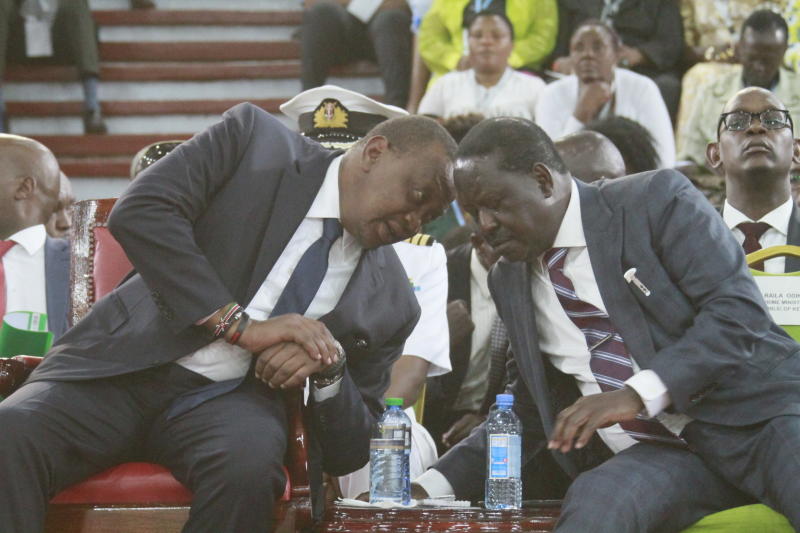×
The Standard e-Paper
Fearless, Trusted News

President Kenyatta (left) and NASA leader Raila Odinga consult during the National Anti-Corruption Conference in Nairobi on January 25. [Boniface Okendo, Standard]
The one-year handshake between President Uhuru Kenyatta and his once sworn political enemy Raila Odinga has altered the political course of the two leaders. Both have made a compromise and presented united fronts, at least publicly, on things that seem to be of concern to Kenyans.